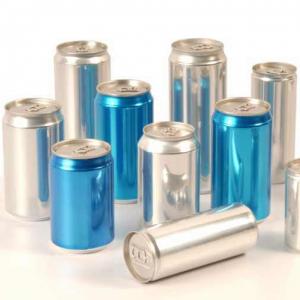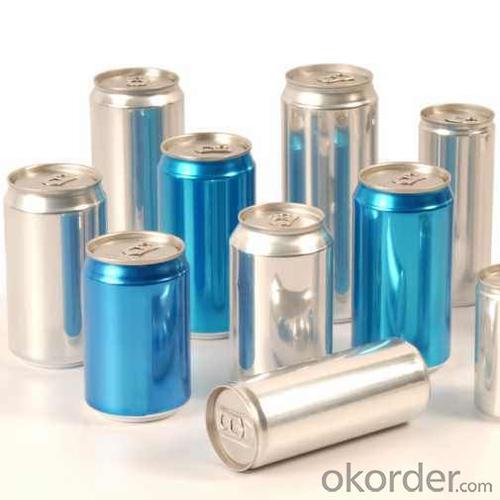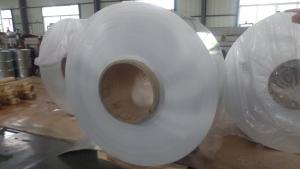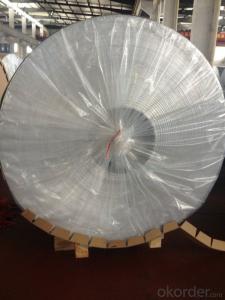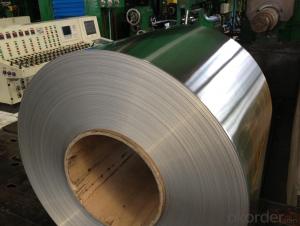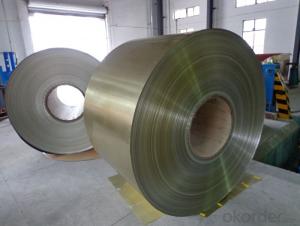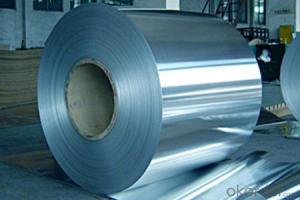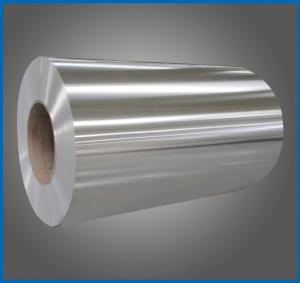3104 5052 5182 Aluminum Coil for Beverage Can Body/ End Tab Stock
- Loading Port:
- China main port
- Payment Terms:
- TT or LC
- Min Order Qty:
- 10 m.t.
- Supply Capability:
- 5000 m.t./month
OKorder Service Pledge
OKorder Financial Service
You Might Also Like
3104 aluminum alloy for aluminum can body
5052 5182 aluminum alloy for aluminum can end and Tab
Aluminum coils for aluminum can body
Alloy type: 3104
Thickness: 0.2-0.28mm made by customer's order
Width: Made by customer's order (peocessed by slitter device ) (+1.5mm--0mm)
Coil weight: 7000kgs--12000kgs
Application: Beverage can, beer can, juice, and so on
Aluminum coils for aluminum end
Alloy type: 5052 5182 H19 H48 H49
Thickness: 0.208mm 0.216mm 0.224mm 0.249mm Made by customer's order
Width: Made by customer's order (peocessed by slitter device )
Coil weight: 2500kgs-3500kgs
Aluminum coils for ring-pull
Alloy type: 5182 H19 H48 H49
Thickness: 0.279mm 0.287mm 0.292mm Make by the customer's order
Width: Make by the customer's order
Coil weight: 2500kgs-3500kgs
- Q: Can aluminum coils be used for signage and display applications?
- Yes, aluminum coils can be used for signage and display applications. Aluminum is a versatile material that is lightweight, durable, and resistant to corrosion, making it an ideal choice for various signage and display purposes. Its flexibility allows for easy shaping and customization, while its smooth surface provides a perfect canvas for printing graphics and designs. Additionally, aluminum coils can be easily mounted, making them suitable for both indoor and outdoor signage and displays.
- Q: What is the maximum coil weight for aluminum coils?
- The maximum coil weight for aluminum coils can vary depending on the specific grade and thickness of the aluminum being used. However, in general, aluminum coils can typically range from a few hundred pounds to several thousand pounds in weight.
- Q: Aluminum is a transition metal, woudn't the stock naming system apply to this formula?
- For the best answers, search on this site okorder
- Q: This question asks for the method to cut an aluminum coil into smaller sections.
- <p>To cut an aluminum coil into smaller pieces, you can use a metal cutting band saw, which is designed for cutting metal materials. Ensure the blade is sharp and the speed is appropriate for aluminum. Secure the coil in a vice or a cutting table to prevent movement during cutting. Wear safety goggles and gloves. Turn on the saw and slowly feed the coil through the blade, applying steady pressure. After cutting, smooth any rough edges with a file or sandpaper. Always follow safety precautions and manufacturer's instructions for your specific cutting tool.</p>
- Q: How are aluminum coils protected against damage during handling?
- Various methods and precautions are employed to protect aluminum coils from damage during handling. To begin with, the coils are typically enveloped in a protective layer, such as plastic or paper, which serves as a barrier against physical contact and scratches. This wrapping also serves to prevent direct contact with moisture or dirt. Furthermore, aluminum coils are frequently affixed to pallets or housed within crates to provide additional protection during transportation. These pallets or crates serve as a buffer, absorbing any shocks or impacts that may occur during handling or shipping. This effectively reduces the risk of dents, bends, or other types of damage that could compromise the coils' integrity. Moreover, proper handling techniques are employed to ensure the coils are not mishandled or dropped. Forklifts or cranes are commonly utilized to lift and move the coils, thereby minimizing the possibility of human error or accidental damage resulting from manual handling. In conclusion, a combination of protective wrapping, secure packaging, and careful handling practices are implemented to safeguard aluminum coils against potential damage throughout their transportation and handling procedures.
- Q: Automotive aluminum coil, using GB H22, what brand, what are the main ingredients?
- 5754-H22 aluminum sheet has the characteristics of medium strength, good corrosion resistance, weldability and easy processing. It is a typical alloy in Al-Mg (mg Al alloy) alloy. In the corresponding foreign brands for AlMg3, 5754 different heat treatment is the automobile manufacturing industry (car door, mould, seals), main materials used for canning industry
- Q: What is the typical density of aluminum coils?
- The typical density of aluminum coils can vary depending on the specific alloy and the manufacturing process used. However, in general, the density of aluminum coils is typically around 2.7 grams per cubic centimeter (g/cm³). This value is slightly less than that of pure aluminum, which has a density of 2.7-2.8 g/cm³. It is important to note that the density of aluminum coils can also be influenced by factors such as the thickness of the coil and any additional coatings or treatments applied to the surface.
- Q: How do aluminum coils contribute to energy efficiency in buildings?
- The use of aluminum coils is crucial for improving energy efficiency in buildings. To begin with, aluminum is an extremely conductive material, allowing for efficient heat transfer. This characteristic is particularly important in HVAC systems, where aluminum coils are commonly employed. These coils aid in the transfer of heat between the indoor and outdoor units, enabling effective temperature regulation and decreasing energy usage. Furthermore, aluminum coils are lightweight, making them easier to handle and install. This not only saves time and labor costs but also reduces the overall weight of the HVAC system, resulting in lower energy requirements for operation. Additionally, the lightweight nature of aluminum coils allows for the creation of compact systems, conserving valuable space in buildings. Additionally, aluminum is highly resistant to corrosion, ensuring the long-lasting and durable nature of the coils. This resistance to corrosion is especially vital in areas with high humidity or exposure to harsh weather conditions. By maintaining their effectiveness over time, aluminum coils minimize the need for frequent replacements, thereby reducing energy consumption associated with the manufacturing and installation processes. Another significant advantage of aluminum coils is their recyclability. Aluminum is one of the most widely recycled materials globally, with a high recycling rate and minimal loss of quality during the process. By utilizing aluminum coils, buildings contribute to a more sustainable and environmentally-friendly approach, as the material can be recycled repeatedly without compromising its performance. Moreover, the recycling process requires significantly less energy compared to primary aluminum production, resulting in reduced greenhouse gas emissions. In conclusion, aluminum coils play a crucial role in enhancing the energy efficiency of buildings through their high conductivity, lightweight nature, corrosion resistance, and recyclability. By facilitating efficient heat transfer, reducing energy consumption, and promoting sustainability, aluminum coils play a vital role in improving the energy efficiency of HVAC systems and overall building performance.
- Q: Can aluminum coils be used in the production of automotive heat shields?
- Yes, aluminum coils can be used in the production of automotive heat shields. Aluminum is commonly used in heat shields due to its excellent thermal conductivity and lightweight properties. It helps to effectively dissipate and reflect heat, making it a suitable material for this application.
- Q: Can aluminum coils be used in signage applications?
- Yes, aluminum coils can be used in signage applications. Aluminum is a popular material for signage due to its durability, corrosion resistance, and lightweight nature. It can be easily formed into various shapes and sizes, making it suitable for different types of signage such as outdoor signs, billboards, trade show displays, and more. Additionally, aluminum coils offer excellent weather resistance, ensuring that the signage remains intact and vibrant even in harsh environmental conditions. The versatility and longevity of aluminum make it a preferred choice for signage applications in various industries.
Send your message to us
3104 5052 5182 Aluminum Coil for Beverage Can Body/ End Tab Stock
- Loading Port:
- China main port
- Payment Terms:
- TT or LC
- Min Order Qty:
- 10 m.t.
- Supply Capability:
- 5000 m.t./month
OKorder Service Pledge
OKorder Financial Service
Similar products
Hot products
Hot Searches
Related keywords
